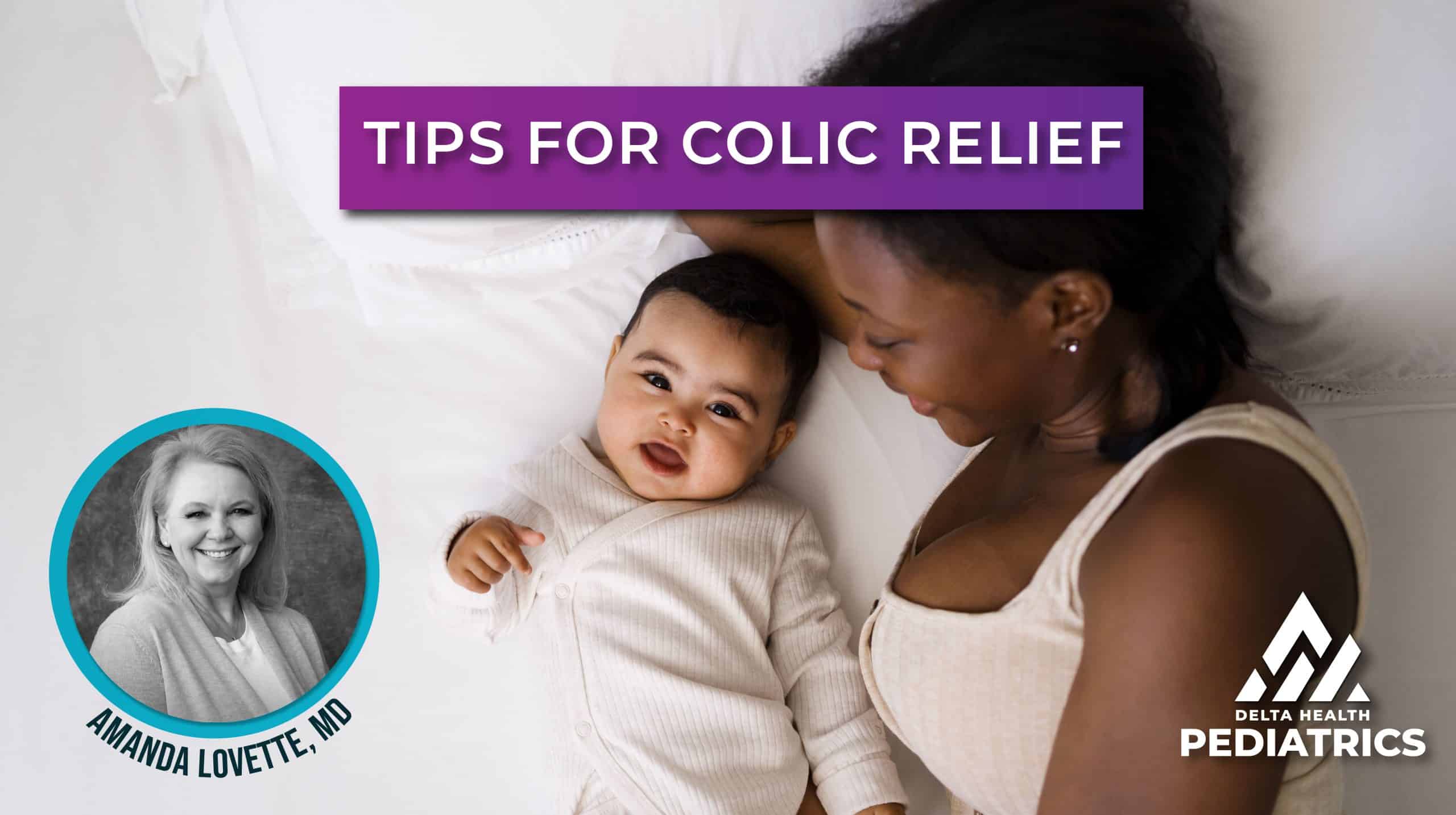If you are a parent, chances are you’ve dealt with colic sometime in your child’s early life. It was one of the most difficult parts of parenting my second child, and I still remember those days as if they happened yesterday (and he turned 23 years old just recently). Colic screaming is serious and I probably still have some bare patches of scalp from tearing my hair out listening to my child yell.
So what is colic? Is it inevitable with every newborn? What can we do to help control colic?
Colic is not inevitable. Many children make it through their early first year without any evidence of it. Colic will present with episodic crying, often extreme and often about the same time every day. Often it is the late evening or overnight when the infant will have the worst symptoms of colic. I think that colic symptoms overnight can impact a family’s mental well-being worse than colic at any other time, because parents cannot get the sleep they desperately need.
Colic really is a diagnosis of exclusion. Even though it has been a recognized condition for decades, scientists don’t actually know what specifically causes colic. A history and a physical performed by your child’s health care provider is very important to rule out other causes of infantile excessive crying like hair tourniquets, urinary tract or other infection, and gastroesophageal reflux, milk intolerance or gas, among other things. As well, there is newer evidence that colic in infants may be related to migraines, especially abdominal migraines. This may be more likely if a parent suffers from migraines.
Though some cases of infantile crying can be addressed by medical means, other cases of colic, including colic related to abdominal migraines, cannot be addressed by adding medications to a newborn’s daily regimen unfortunately, because there are few medications approved for this age group. Instead, colic symptoms usually must be treated with non-medical management.
Some parents have noted that taking a crying baby on a car ride while securely strapped into their car seats will help colicky babies calm down. Others will wrap their baby firmly in a blanket and turn off the lights in the room and keep everything quiet. Still others will turn on a source of “white” noise, like static on a radio station, or a vacuum, to calm their infants. A few years back, there was a study that suggested that liquid probiotics given daily to a colicky infant helped reduce colic symptoms. Sometimes gently bouncing an infant can help with colic, while other infants need gentle rocking and minimal bouncing. With time, you, with the help of your child’s care provider, may be able to determine the best way to calm your baby during his colic episodes.
The good news is that colic doesn’t last forever. Most infants, if they are going to experience colic, will start showing signs by 6 weeks to 2 months. And most colic will resolve by 4-5 months. That is good news for a parent’s mental health and fatigue level.
If you have any further questions or concerns, please contact us at Delta Health Pediatrics at 970.546.4000 or visit deltahealthco.org/delta-health-pediatrics/.


